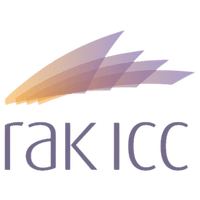Family Offices

What is Family Offices
The purpose of creating an entity known as a Single Family Office (SFO) is to serve the interest of a single family. Its main focus is on managing the affairs of only one ‘wealthy family’. Many family offices incorporate International Business Companies and Foundations with RAK ICC. This acts as an efficient and effective tool to achieve their objectives. In addition, single family offices tend to provide broadly two types of services or a combination thereof:
- financial planning and investments including; wealth and asset management, asset monitoring, holding shares in a family business, assets, trusts and foundations as well as tax and legal services
- supporting the family’s day to day needs such as concierge services, travel planning and administrative functions to that same family; whether to a family member, family business, family entity or family trust or foundation.
Family Office models
A wide range of family office models are in use today. There are several key differences between single family offices and multi-family offices that serve several unrelated families. Variants also include private family trust companies that are legally constituted in a form that maximizes tax and estate planning, along with long-term fiduciary oversight. The private trust company may work in concert with a family office or operate as a standalone entity. Another model is the family investment company. These entities often undertake investment activities on behalf of the family, but do not offer support services that are often provided by the traditional family offices. Support services can include residence management, legal and accounting services. Regardless, the common denominator is that the office serves only one family, which may include multiple generations or even family branches. While it is often said that each family office is unique, they do share many common attributes in respect to operational practices and service delivery models. The uniqueness of each family office is most often due to the values, interests, needs, and idiosyncrasies of the family it serves. Furthermore, we often see great variety in governance, family engagement, communication practices, and the degree to which the office enables and enriches the lives of family members.
Family Office structure
Three key factors define family offices:
- Size – number of staff
- Complexity – legal entity structures, investment types, number of generations, etc.
- Autonomy of the office – the degree to which professional functions has been outsourced to third parties or carried out internally by staff. For example, investment management, legal, or accounting functions.
Why consider establishing SFO?
There are several reasons for setting up a Single Family Office. These essentially will focus on the family’s vision, plans and needs. Therefore, the fundamental objective would be to protect and preserve family wealth through generations, and to ensure that this objective is given a structure that caters to that family and evolves as the family grows or changes.
- Protect the family’s privacy and ensure discretion
- Manage the risks facing the family
- Exert greater control over the family’s holdings
- Simplify the administrative burden on family members
- Ensure continuity of legacy and values across generations
- Oversee family enterprises (businesses, philanthropy, etc.)
- Manage family wealth and deal with succession
- Pool family resources to access greater investment opportunities and better pricing
- Provide a single resource to oversee the family’s wealth
- Focus exclusively on the needs and interests of the family

